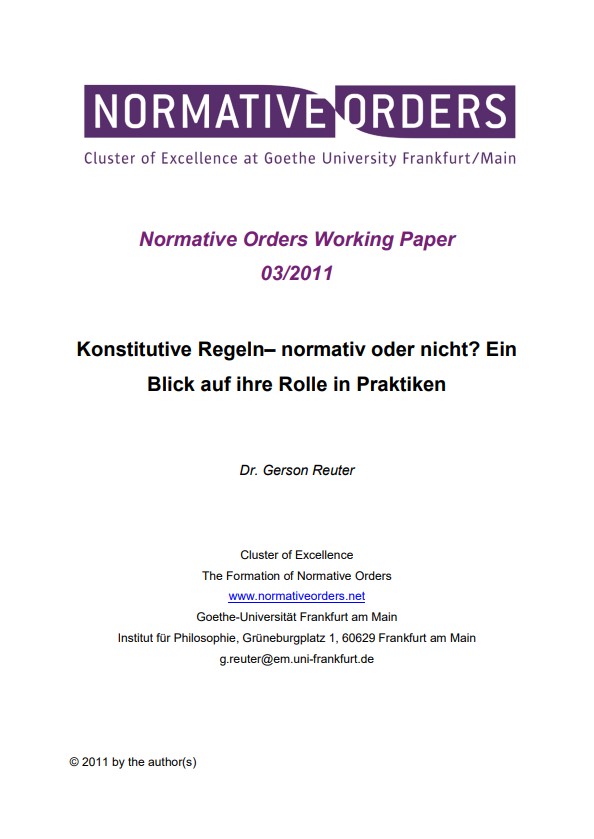Constitutive rules – normative or not? A look at their role in practices
The text Constitutive rules – normative or not? A look at their role in practices explores the question of whether – and if so, in what way – constitutive rules are normative. The challenge is that these rules or their observance may be consistently described in non-normative terms – essentially as the fulfillment of necessary and/or sufficient conditions. Of course, for whatever reason, one can always demand that a constitutive rule be followed. But this would impose normativity on such rules “from the outside”; the question is whether these rules themselves are normative. Our dealings with these rules and our everyday talk about them certainly speak in favor of such an “internal” normativity. In our everyday practice, for example, we describe following the rules of the game (as prime examples of constitutive rules) as something that is correct or should be done – and deviations accordingly as violations. The text’s line of reasoning is divided into two parts: In a first step, some types of constitutive rules are distinguished. The systematic yield of these conceptual considerations consists in the proposal that some types of constitutive rules can be characterized as normative phenomena without any problems, while others cannot. In a second step, an attempt is made to show that some of the real “problem cases” of constitutive rules can at least be described as weak normative rules (in contrast to strong normative phenomena such as obligations or prohibitions). The “weak normativity” of these rules comes to light when one considers their role in practices – in particular the way in which actors in these practices criticize themselves by invoking constitutive rules without already treating themselves as obliged to follow these rules.


